


2024 Winter Vacation - The University of Western Australia's Engineering Program Direction Visit Sharing
As the northern hemisphere enters late fall and winter has already arrived, the southern hemisphere is in full bloom. Therefore, students took advantage of the winter to escape from the cold winds of the northern hemisphere, and went to Australia in the southern hemisphere to continue to enjoy the summer sunshine and sea water, and enjoy the summer once again. Let's take a look at the students' sharing of their summer study visit to Australia!
--A Student (LIU)
Studying at the University of Western Australia (UWA) has been immensely rewarding. The course schedule at UWA is relatively flexible, allowing us plenty of time to manage our studies and activities independently.
The environment at foreign universities, like UWA, is very different from those in China. There are no gates, no security checks, and the campus is filled with a vibrant natural atmosphere. The lush greenery and frequent appearances of black-and-white peacocks add to the campus’s natural charm. The presence of ancient European-style architecture throughout the campus creates a rich historical atmosphere. Iconic landmarks like the UWA clock tower and graduation hall make the campus a must-see destination for students who love photography and exploration.
For our three-week program, the university invited a professor from the engineering school to teach us. During this time, the professor introduced us to the key features of engineering studies at foreign universities, including how students approach learning and problem-solving in this field. This allowed us to experience the differences in educational methods between China and overseas institutions, and it gave us important insights for our future engineering studies.
From the very beginning, I noticed how different the teaching style was compared to what I was used to in China. The learning environment was relaxed and enjoyable, and the professor actively encouraged us to participate. Sometimes we didn’t even need desks, multimedia, or textbooks to complete our tasks. We simply sat together in a circle, using educational tools (like the UN's 17 Sustainable Development Goals), and we were able to carry out our lessons. This kind of teaching approach shortened the distance between students and teachers, creating a more engaging and efficient learning environment.
Throughout the three weeks, we were divided into small groups to develop our teamwork skills—a crucial aspect of most engineering research projects, which are usually completed through team collaboration. This gave me valuable insights into how team-based learning works and will guide my future studies. The team I was in included students from different academic backgrounds and ages, and when it came to projects, we all contributed based on our individual strengths and areas of expertise, greatly improving the efficiency of our teamwork. We tackled projects by breaking them down into three main stages: understanding the problem, analyzing the problem, and solving the problem. Throughout the project, the professor pointed out areas for improvement and suggested better approaches. Our group worked cohesively and quickly, and we were able to design the most effective device in a short amount of time. The final group presentation also went smoothly. More experienced group members helped me with tips on analyzing data, creating bar charts, and identifying the most important aspects of a PowerPoint presentation, which provided me with practical skills for my future university studies.
In addition to engineering lessons, we also had the opportunity to visit several advanced laboratories and observe how researchers work, which significantly broadened our knowledge. During each lab visit, the project leaders or professors explained their specialized fields. Even though some of the topics weren’t directly related to my major, the experience greatly expanded my understanding. We saw world-class equipment and instruments, dedicated researchers analyzing experimental data, hydraulic laboratories, marine genetic engineering labs, and more—all of which showcased the unique appeal of engineering.
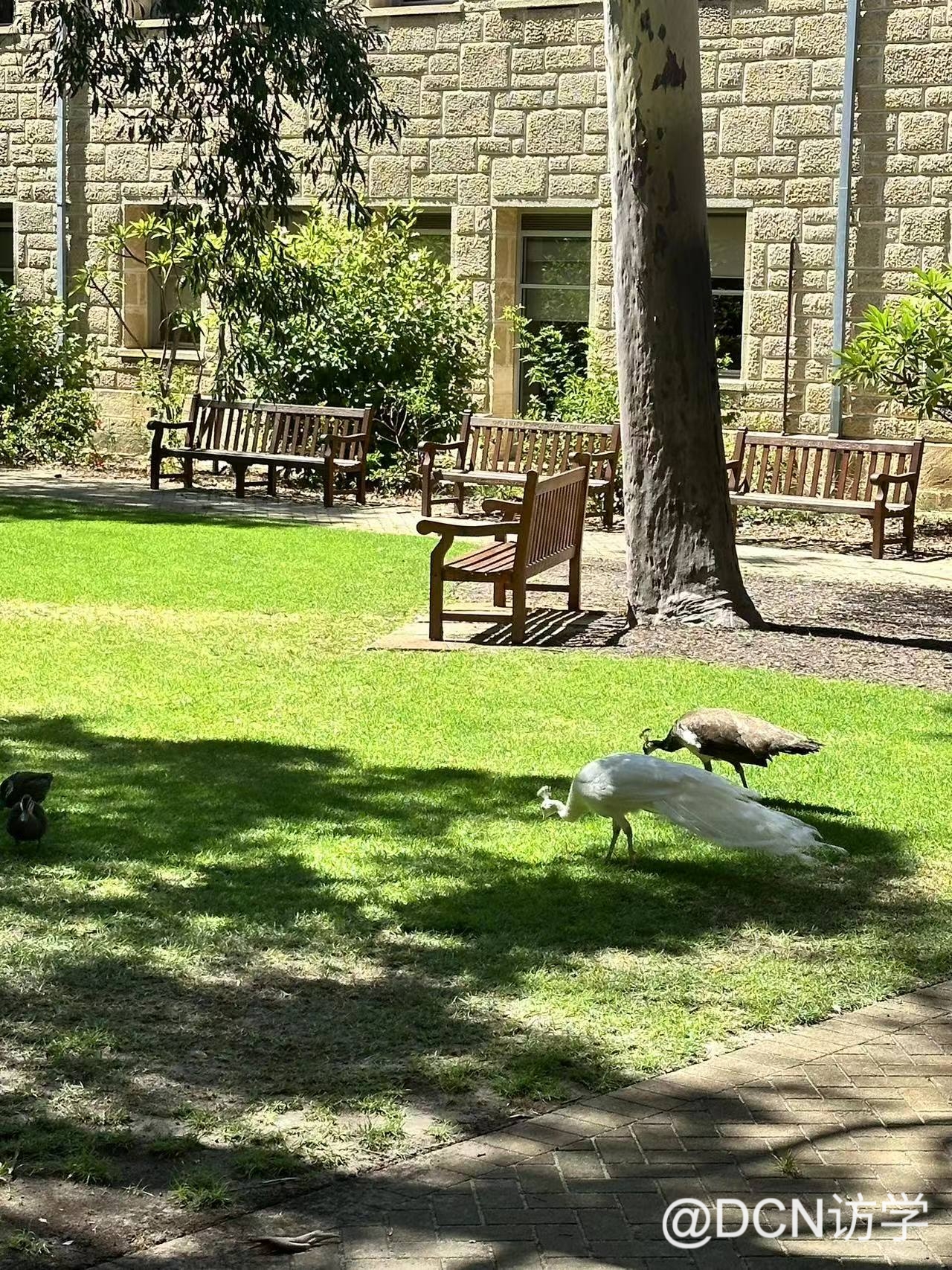
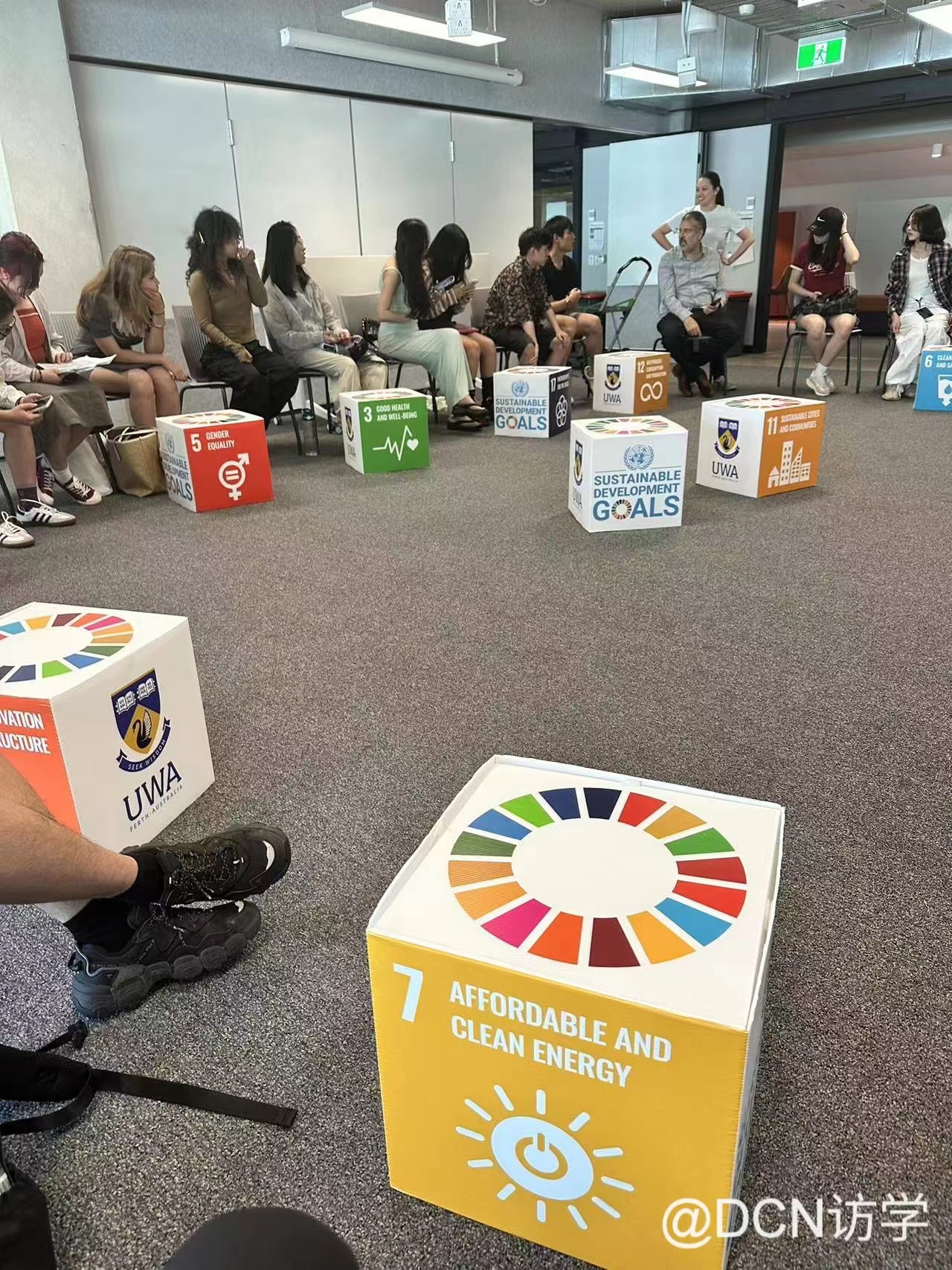
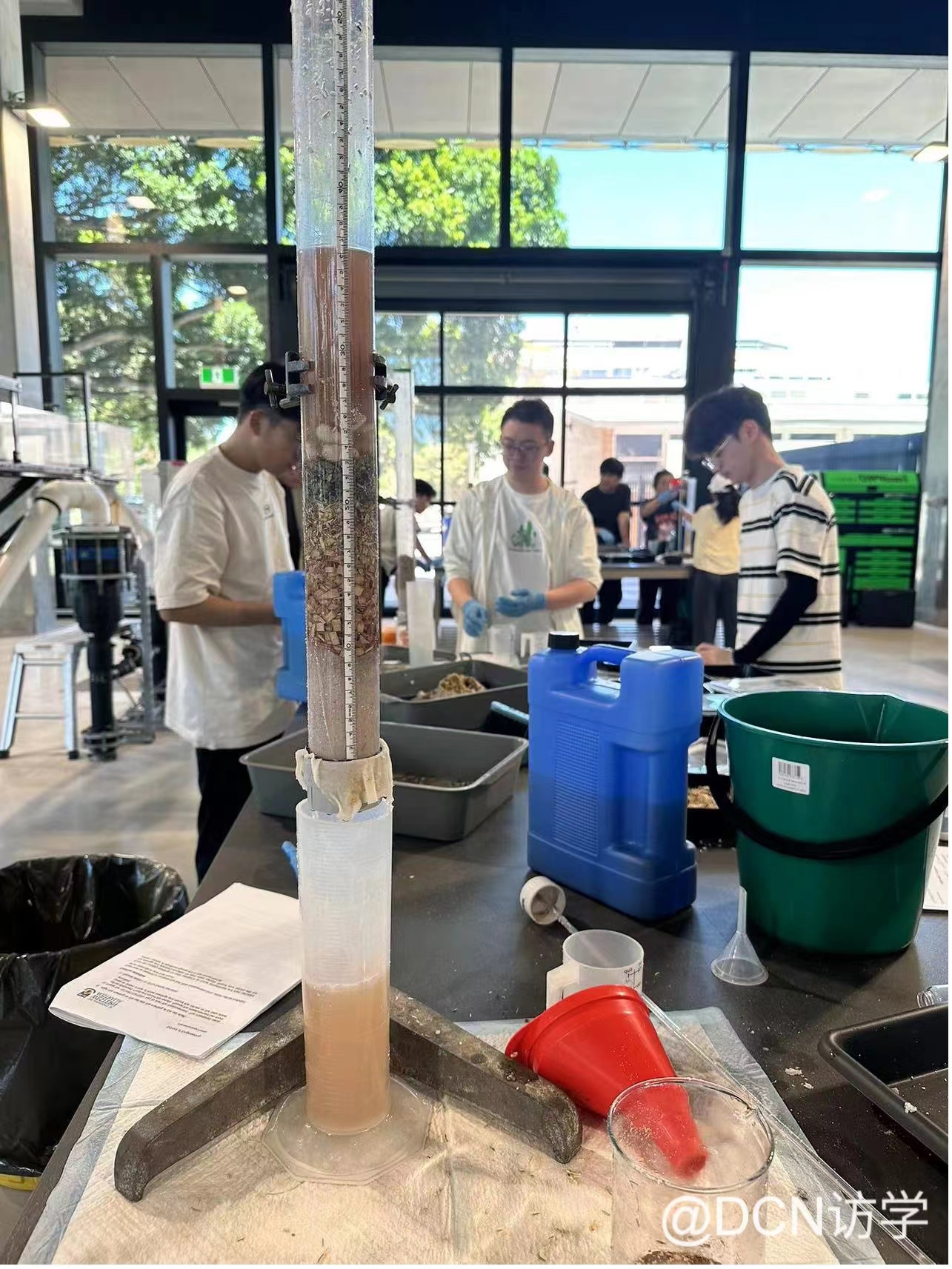
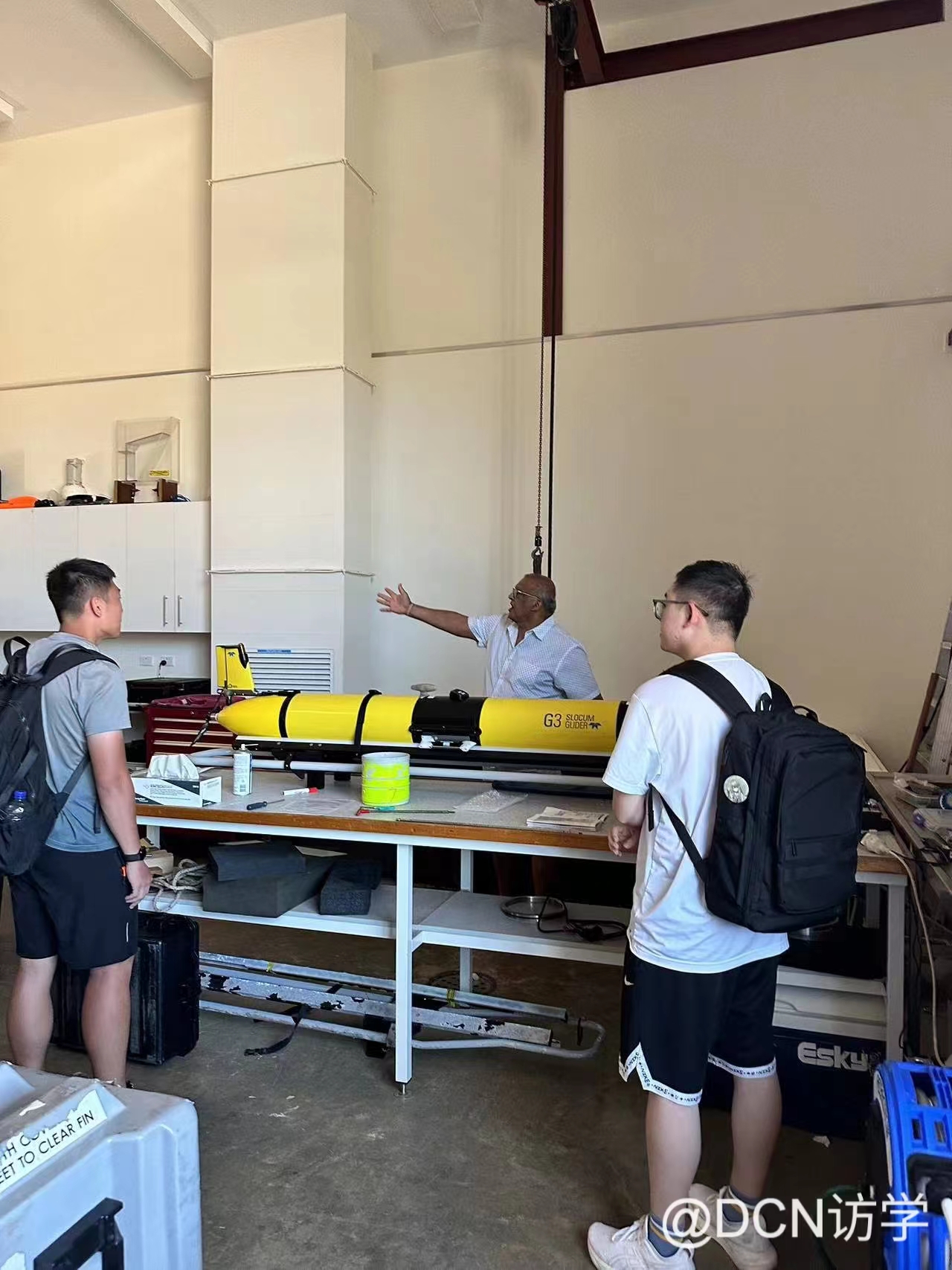
During my journey to Western Australia, my homestay family became one of the most important sources of support and comfort in my life abroad. My host family was an incredibly loving elderly couple who took care of every detail of my daily life, from meals to accommodations, ensuring everything was perfect. Over the course of my 18-day stay, dinner was different every night, and even when I wasn’t used to certain dishes, they made every effort to cater to my preferences. They also had a 6-year-old boy, who gave me a big hug every morning and before bed—such a heartwarming gesture. In the afternoons, he would invite me to play basketball or jump on the trampoline in the yard, making the whole family atmosphere very comfortable and cozy.
When I went for walks around the neighborhood in my spare time, many of the neighbors would greet me warmly. I often played basketball with a boy from the neighboring house, enjoying the sunset together. Although we came from different countries, we bonded over our shared love for the sport and had a great time together.
Every evening after dinner, the host grandmother would engage us in cheerful conversations. We talked about our hobbies, families, and the cultural differences we experienced, creating a beautiful blend of cultures. At home, I communicated with family members in a foreign language, which helped improve my speaking and listening skills and boosted my confidence in using the language for daily conversations and social interactions. My host family also gave me tremendous support and encouragement in my language learning, motivating me to keep improving my language proficiency.
The homestay provided me with emotional and cultural support during my time abroad, giving me a sense of warmth and security that felt like home. Living with my host family taught me many valuable lessons, and I gained countless wonderful memories. I will always cherish the time I spent with them and am deeply grateful for their companionship and support throughout my study tour. The experience with my homestay family will always be one of the most precious parts of my study abroad journey, giving me a deeper understanding of human connection, family bonds, and friendship.
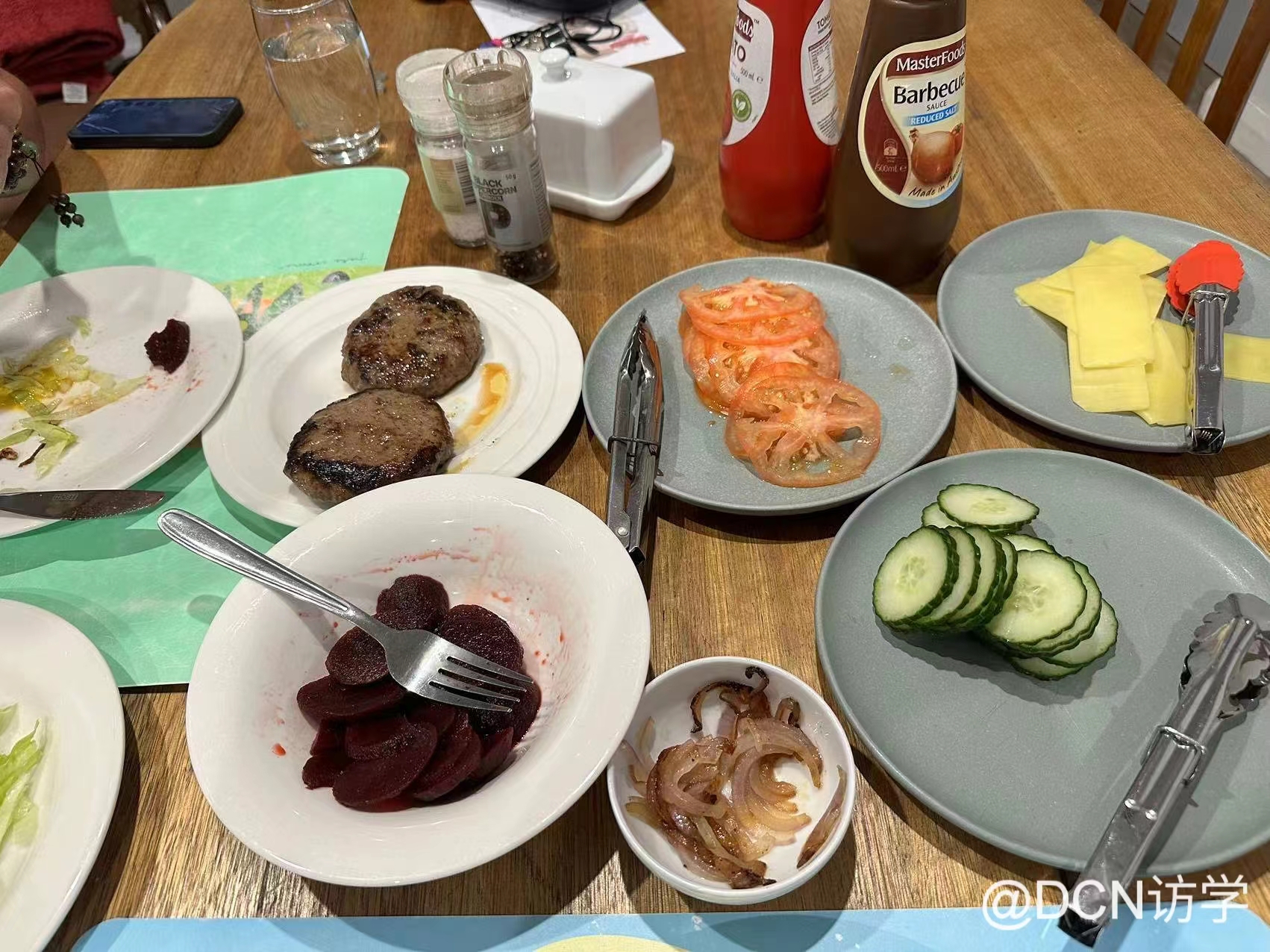
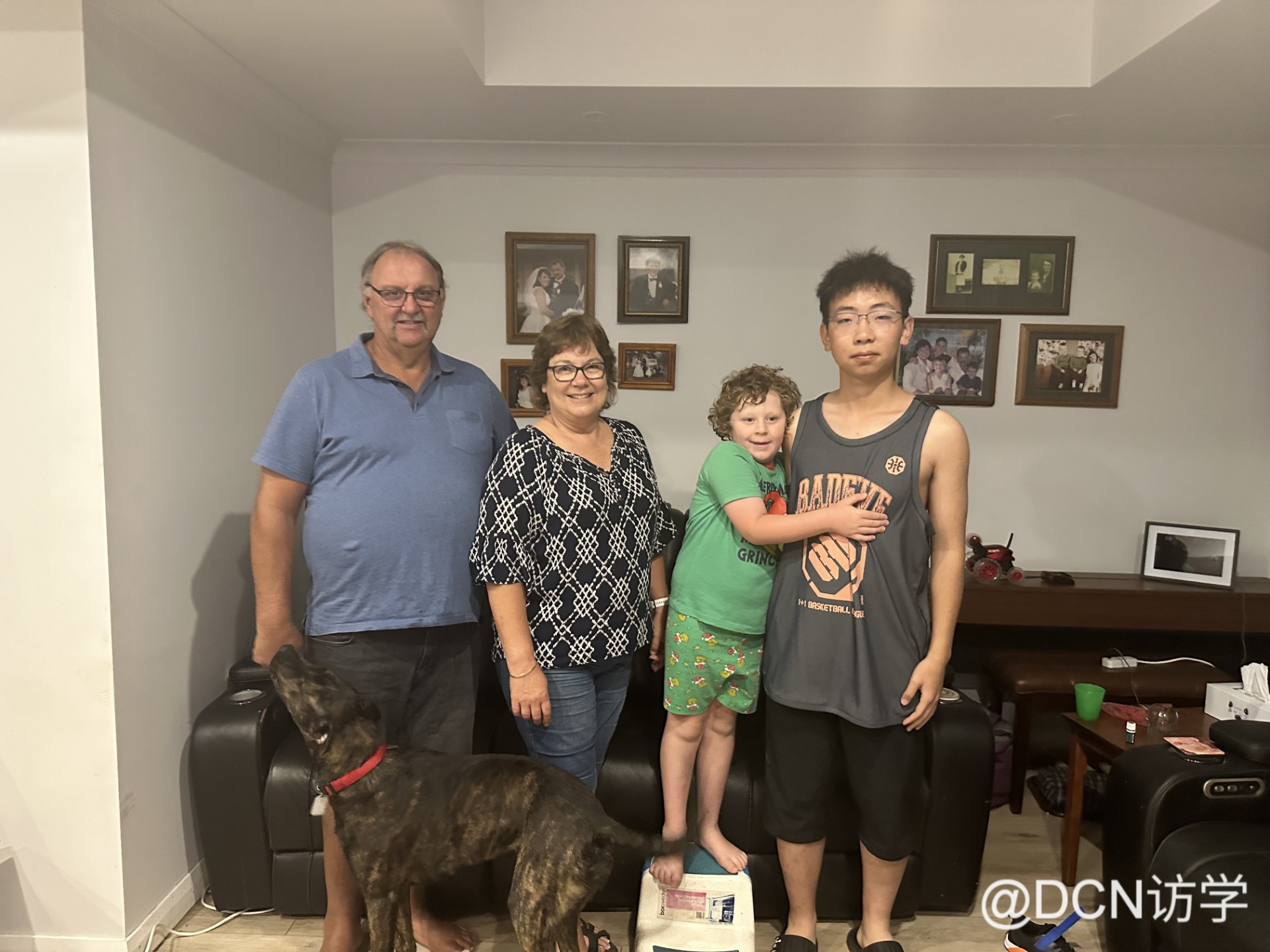
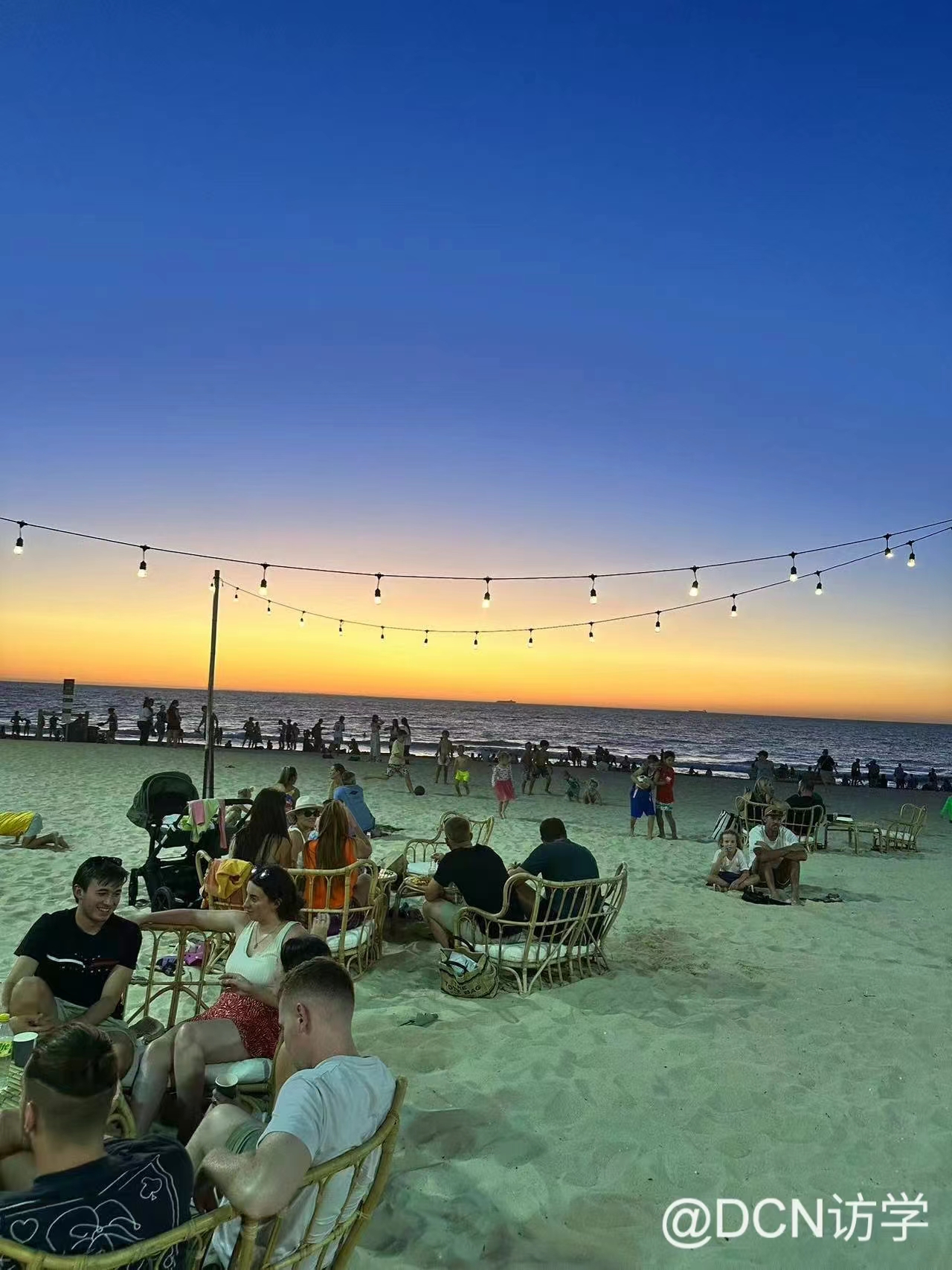
Upon arriving in Sydney, we not only experienced the city's unique scenery but also explored the distinctive charm of its local universities. We visited many famous landmarks in Sydney. The beaches here are one of the city’s most stunning attractions. Bondi Beach, Manly Beach, and Coogee Beach are world-renowned for their golden sands, clear waters, and extensive coastlines, creating a unique seaside landscape. Here, people can enjoy sunbathing, surfing, and playing in the waves, experiencing Sydney's distinctive beach lifestyle. Additionally, Sydney's parks and gardens add greenery and vitality to the city. The Royal Botanic Garden and Hyde Park are famous green spaces where locals go to relax and unwind. Walking in these parks, with nature all around, allows people to feel the beauty and tranquility of the outdoors, forgetting the hustle and bustle of the city.
Sydney is also home to numerous cultural landmarks and modern attractions, such as Sydney Tower, the Sydney Fish Market, and Sydney Zoo, showcasing the city’s rich cultural heritage and modern flair. Exploring these places with a few friends, walking under the green trees, is an unforgettable experience.
We also took the opportunity to visit two of the most prestigious universities in the area: the University of Sydney and the University of New South Wales (UNSW). The academic atmosphere and international presence at the University of Sydney were particularly impressive. During our visit, I saw many students engaged in academic discussions and collaborative research. The university boasts an outstanding faculty and world-renowned research centers, attracting students and scholars from all over the globe. This multicultural academic environment exposes students to diverse ideas and perspectives, fostering creativity and critical thinking.
The campus atmosphere at UNSW left a deep impression on me as well. The campus is spacious and clean, with tree-lined paths and beautiful surroundings. Walking through the campus, you can feel the strong academic spirit and energy. The architectural styles are diverse, with a mix of historic buildings and modern teaching facilities and laboratories, blending classical and modern charm.
One lucky highlight of my visit to UNSW was stumbling upon a campus event featuring a famous basketball star. I even managed to take a photo with my favorite player—something I never imagined happening back in China. We all spent time on the court, enjoying the game and the thrill of seeing the stars in action, while basking in the gentle breeze of UNSW. It was a basketball experience from the other side of the world that I will never forget.
At the University of Sydney, we coincidentally arrived during Club Day, where various student organizations were showcased. From the Formula One Club to the Hockey Club and Boxing Club, the open campus atmosphere was truly captivating compared to universities back home. The iconic Harry Potter-style buildings and graffiti walls on campus were also must-visit spots for photos.
During my Sydney trip, I also made many friends, including local students and international students. Despite being the same age, we shared our different experiences and backgrounds, savoring the cultural differences and marveling at the diversity of the world. They were open to embracing people from different cultures and respected diversity. We bonded over discussions about football, cricket, rugby, and tennis—sports that are as much a social and recreational platform as they are competitive events.
In summary, Sydney is a city full of vitality and charm, with its stunning harbor, beautiful beaches, pleasant parks, and vibrant cultural attractions painting a picture of urban beauty. Whether enjoying the harbor views at sunset or strolling through parks to breathe in nature’s beauty, Sydney offers constant joy and surprises. A trip to Sydney is bound to be an unforgettable experience, leaving a lasting impression for a lifetime.
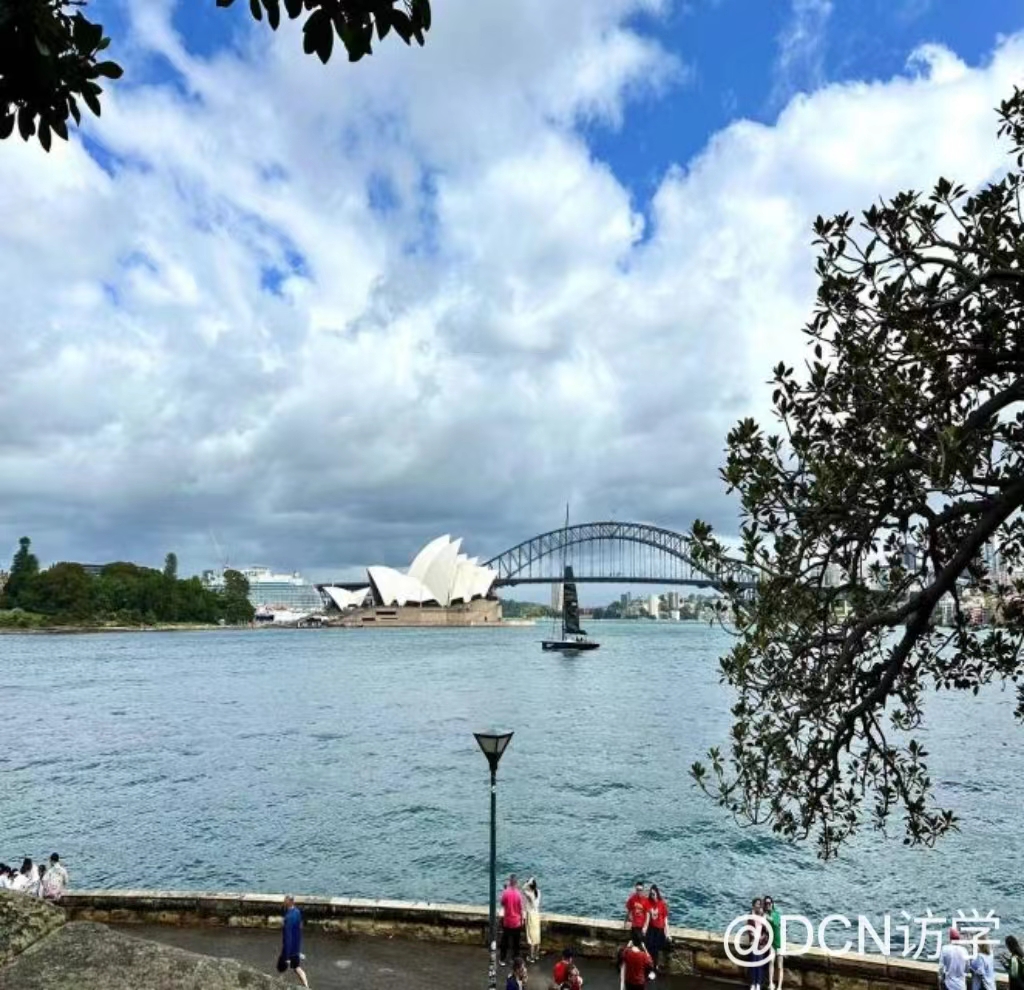
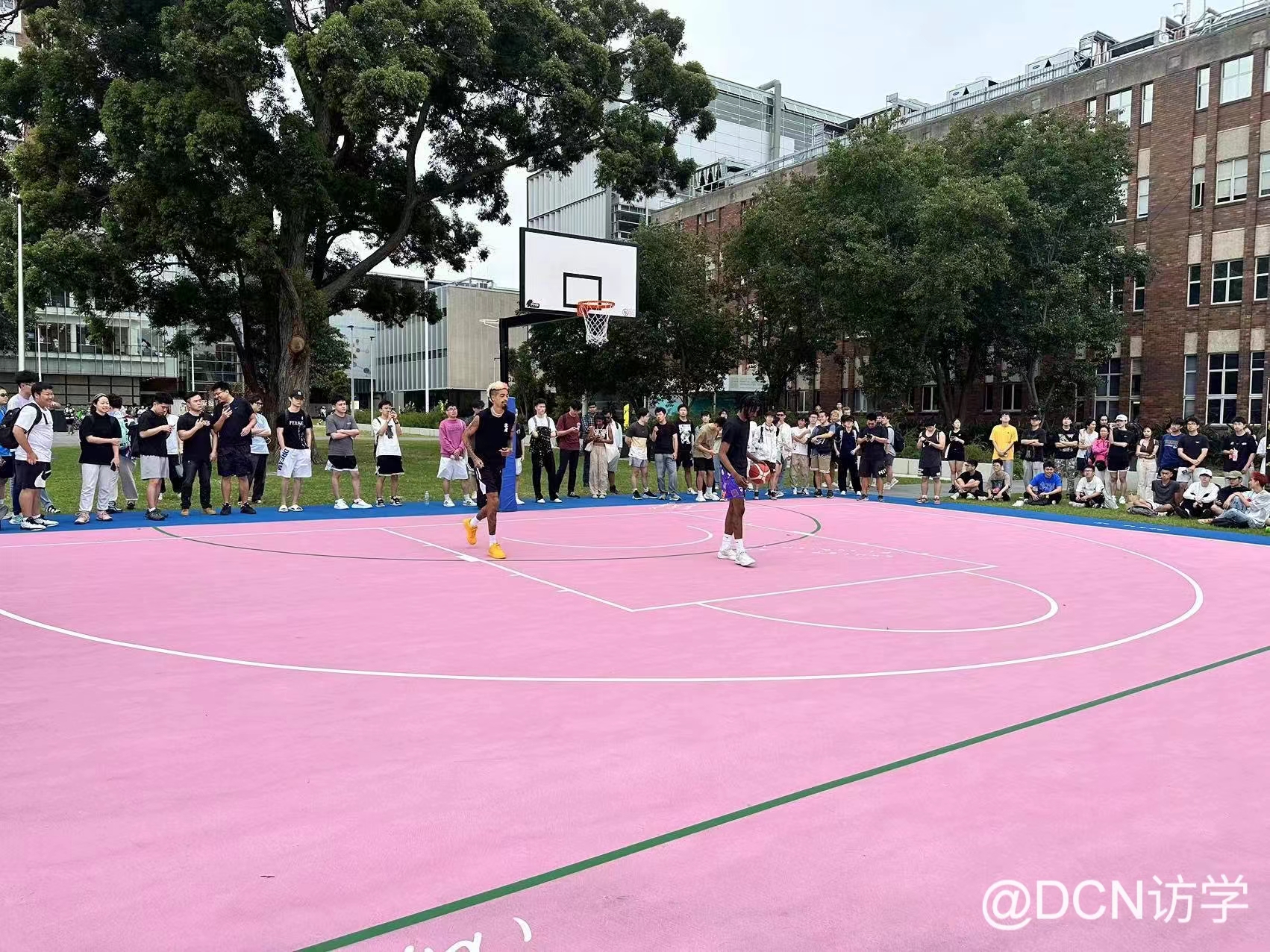
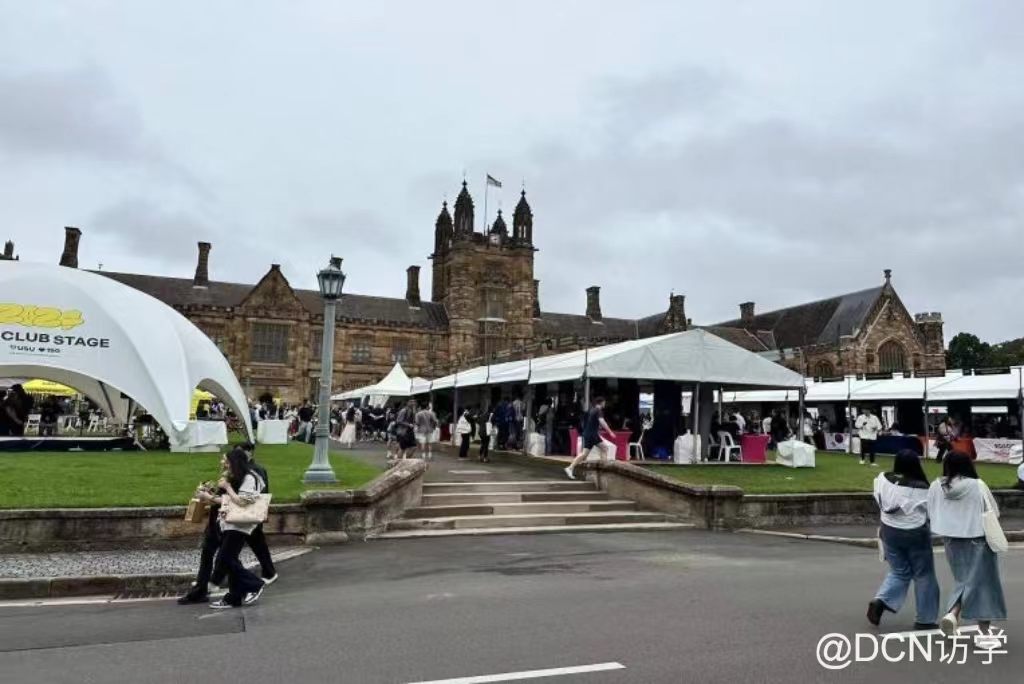
-----A Student (SUN)
1. First Impressions of Australia
The University of Western Australia (UWA) is located in Perth, the capital of Western Australia, often referred to as "the most isolated city in the world." Situated on the western coast of Australia in a Mediterranean climate zone, Perth enjoys mild weather and boasts the stunning scenery along the Swan River, making it a highly popular tourist destination. This city left me with three lasting impressions: its barren, sandy landscapes, its vast, blue coastlines, and the kindness and friendliness of its people.
UWA is nestled in a lush green area, with tall clock towers, European-style buildings, and soft grassy lawns creating a harmonious scene. Students and professors moved through the campus, and although most students were on vacation when we arrived, we still saw a few sitting on the grass or stone benches, studying. It was at this moment that my study tour officially began.
2. Lessons and Gains
At UWA, we primarily learned the basics of engineering, collaborated on a group project, and visited various laboratories.
Our classes started at 9 AM each day. Initially, the courses focused on basic engineering knowledge, including safety and key considerations for experiments. During the lectures, I noticed that foreign education tends to emphasize more verbal interaction. The exchanges between teachers and students were frequent, and if no one responded to the teacher's questions, the teacher would visibly show disappointment. Luckily, we had a senior Chinese student who helped guide us and translate, allowing us to quickly adapt to the pace of the lessons.
Midway through the program, we moved on to hands-on experiments in the lab, which was both my favorite and most memorable part of the learning experience. Through the repeated process of conducting experiments, I not only gained a deeper understanding of an engineer’s design thinking but also developed skills in drawing and analysis. Failures were inevitable, but the data gathered through these failures became the foundation for our eventual success. After about two weeks of experiments, we finally achieved the desired results and completed our report.
In front of our course instructor, our accompanying teacher, and the Australian program director, we conducted a final presentation and defense. Thanks to the practice we had in our professional English classes, where we learned how to deliver presentations in English, the task wasn't too difficult. As long as we presented confidently and clearly conveyed the information, we were met with applause.
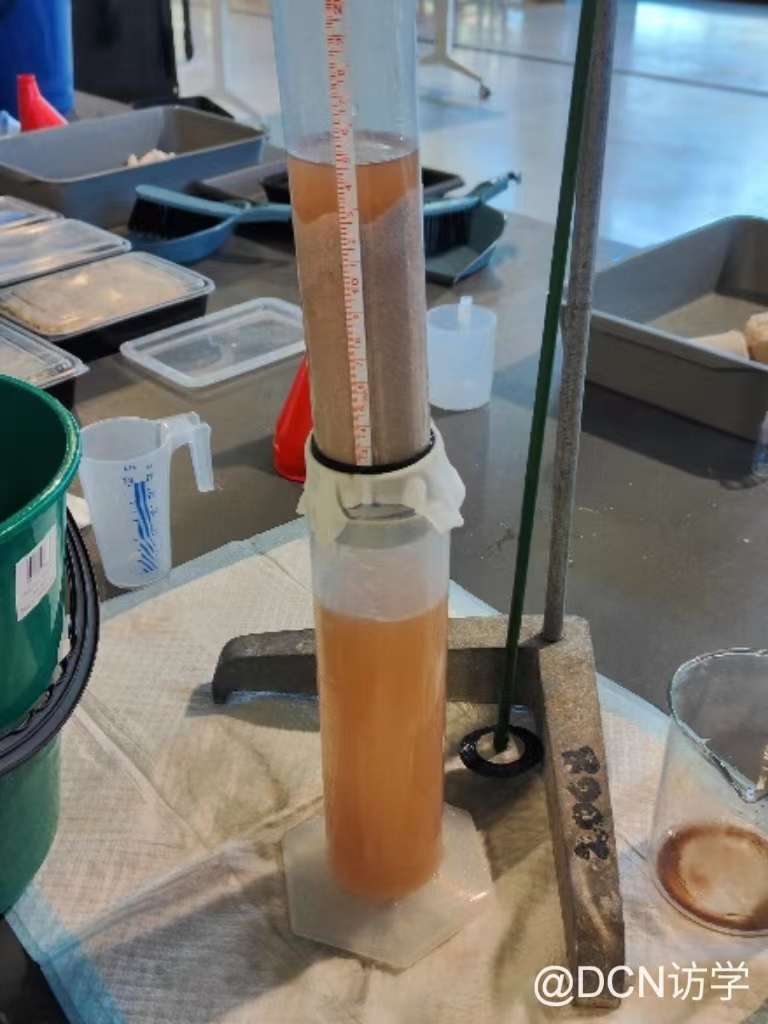
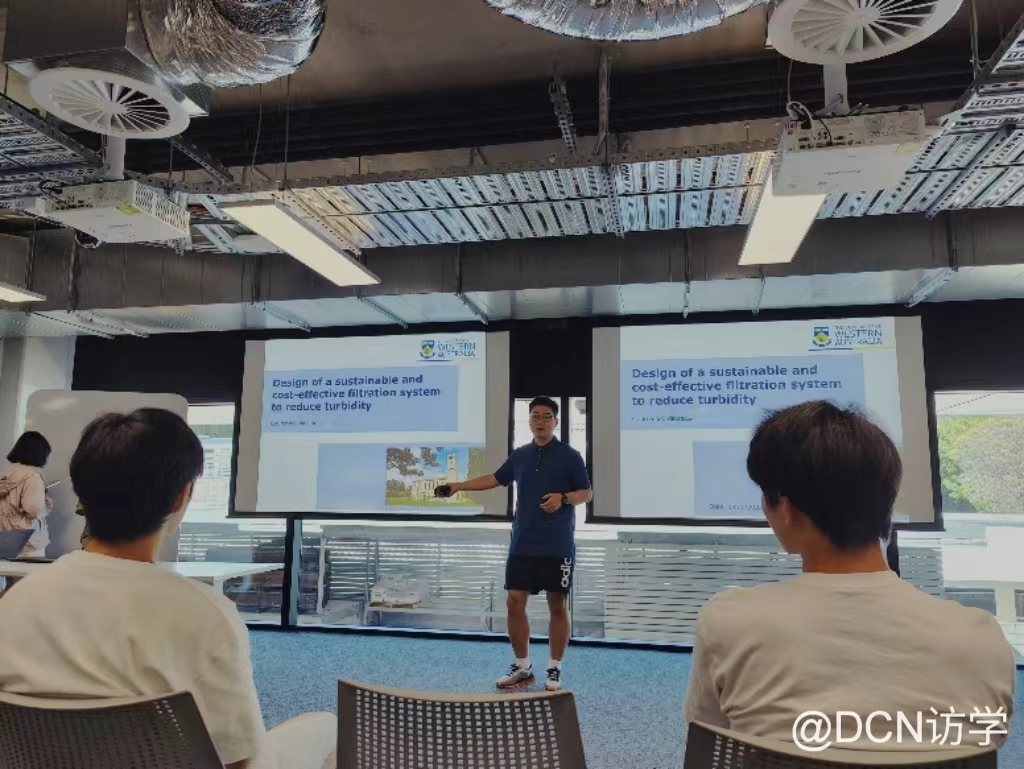
3. Celebrating the New Year Abroad
Australia, as a culturally diverse nation, is quite inclusive of differences between various cultures. Here, you can not only enjoy Western cuisine but also traditional Chinese dishes. Our host was a kind grandmother who was an excellent cook, often preparing European dishes for us, which my roommate and I enjoyed immensely. Of course, many students abroad might crave rice and hometown food, and in Perth’s Northbridge area, there are many Chinese restaurants offering Cantonese, Sichuan, and other regional cuisines. So, as a foodie, there’s no need to worry about food being monotonous—each dish carries its own unique cultural heritage and historical significance.
On the first day of the Lunar New Year, Northbridge hosted a celebration event. There, we saw traditional Chinese performances like lion dances and tai chi, alongside Scottish kilt-wearing police officers playing Western music. Many locals also wore red shirts to share in the festive spirit and extend their best wishes for our holiday. In Perth, besides our studies, we were able to experience a truly unique holiday atmosphere, different from what we were used to back home.
4. Conclusion
During my nearly month-long study tour at the University of Western Australia, I gained a wealth of theoretical and practical knowledge. I also made many international friends and learned about various foreign cultures. These experiences will become invaluable assets that will greatly benefit my future development.
As President Xi Jinping once said, "Civilizations become richer and more colorful through exchanges and mutual learning. Such exchanges are an important driving force for the advancement of human civilization and the promotion of world peace and development." I believe that the purpose of this study tour was not only to acquire academic knowledge but also to explore the beauty of the "poetry and distance" in life.
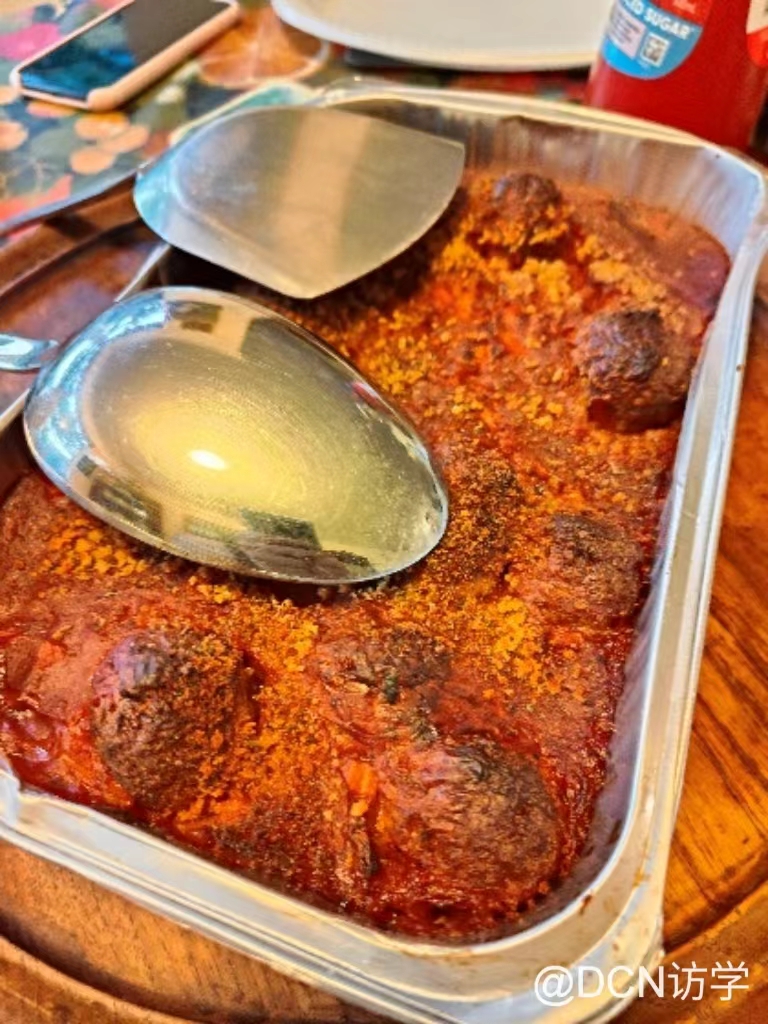
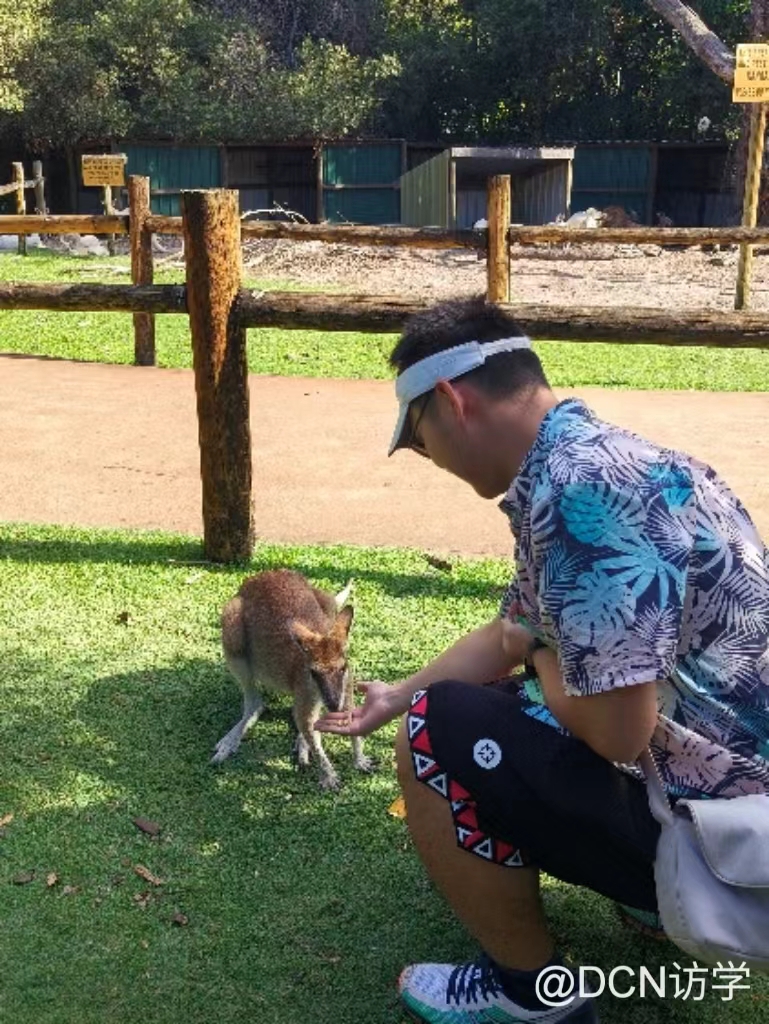
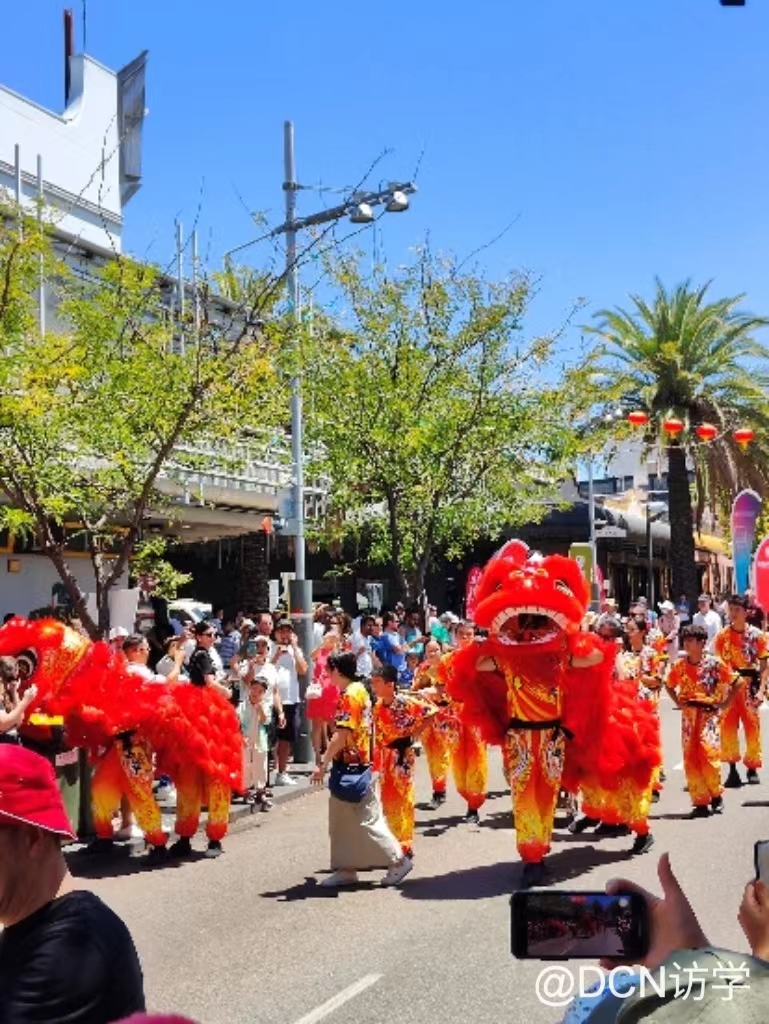
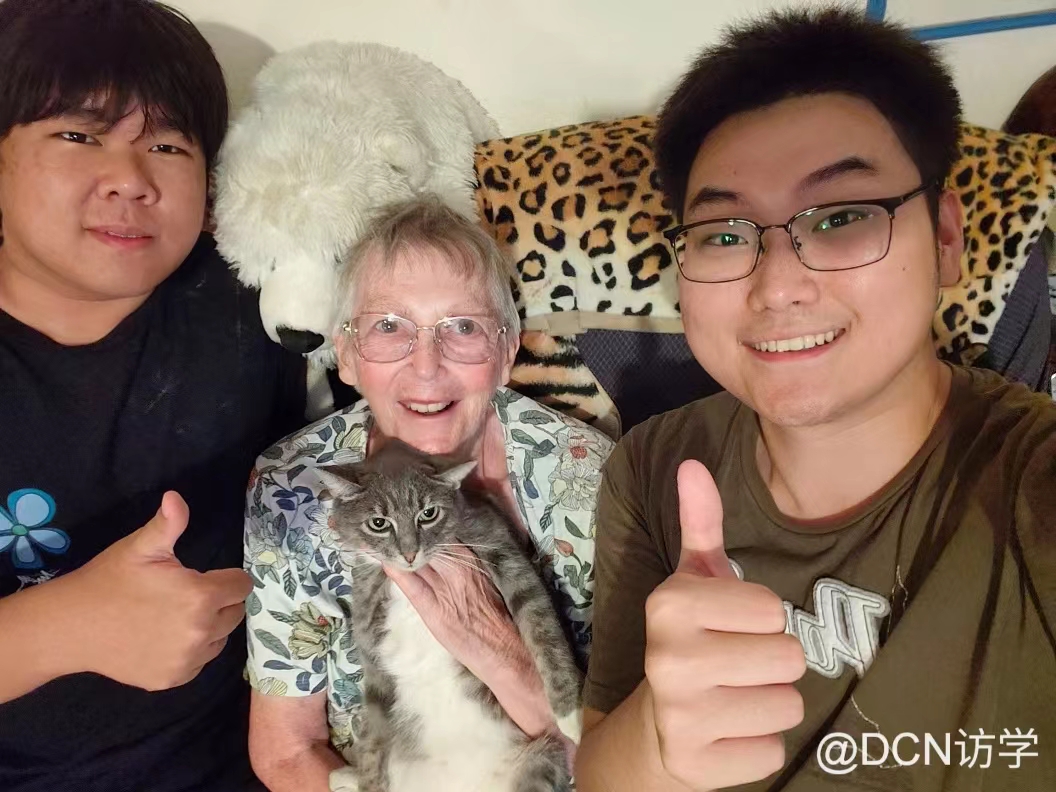
----A Student (LIU)
After four months of studying abroad, I have gained a lot—not only in terms of understanding engineering thinking but also in experiencing the local culture of a foreign country.For me, my study experience at the University of Western Australia (UWA) was a wonderful and unforgettable memory. During this time, I experienced many "firsts": my first time studying in a foreign country, my first time celebrating the New Year away from home, my first time making international friends, my first time writing a paper in a foreign language, and my first time giving a presentation in English. All of these firsts made for a happy and fulfilling semester. I’ve truly gained so much, and it has given me a lot to reflect on.
UWA is a beautiful university, and as one of the must-see attractions in Perth, it draws numerous tourists. Indeed, the campus stands out with its unique architectural design, high forest coverage, complete facilities, and deep sense of human care. Through a month of study, even though the engineering field was new to me, what I learned most was a new way of learning—specifically, engineering thinking. There were two aspects that left a particularly deep impression on me:
1. Encouraging Students to Think and Express Themselves
In every class, we engaged in group discussions in teams of four. Each person's ideas were shared and discussed. This differs from the current situation in Chinese universities, where lectures tend to dominate, and discussions are less frequent. Here, students are encouraged to focus on the process of thinking and expressing their own views, and all kinds of ideas, no matter how unusual, are accepted and respected. The teachers encouraged everyone to share their thoughts, and even if our English wasn’t perfect, they guided us to express ourselves and boosted our confidence. Many classes abroad are conducted in a circle, with an emphasis on eye contact and dialogue between students and teachers. Everyone freely expresses their opinions, and the teacher primarily acts as a guide, while the students take the lead in the classroom. This created a joyful and interactive learning environment.
2. A Focus on Practicality in Teaching
Our classes were divided into theory and lab sessions. During the theory classes, the teachers covered all the fundamental knowledge points. In the lab sessions, we were given hands-on tasks. These experiments not only improved our practical skills but also enhanced our problem-solving abilities and teamwork. The experiments were designed to be approachable for students from different majors and were closely related to everyday life, making them both relevant and accessible.
A month can feel both long and short, but this experience will stay with me forever. It introduced me to a completely different world and a new learning environment. I witnessed firsthand the differences between Australia and China in terms of society, culture, and education. I hope more students will have the opportunity to step out and explore, to experience different systems and cultures. The ideas and insights gained from these experiences are the most valuable and meaningful.
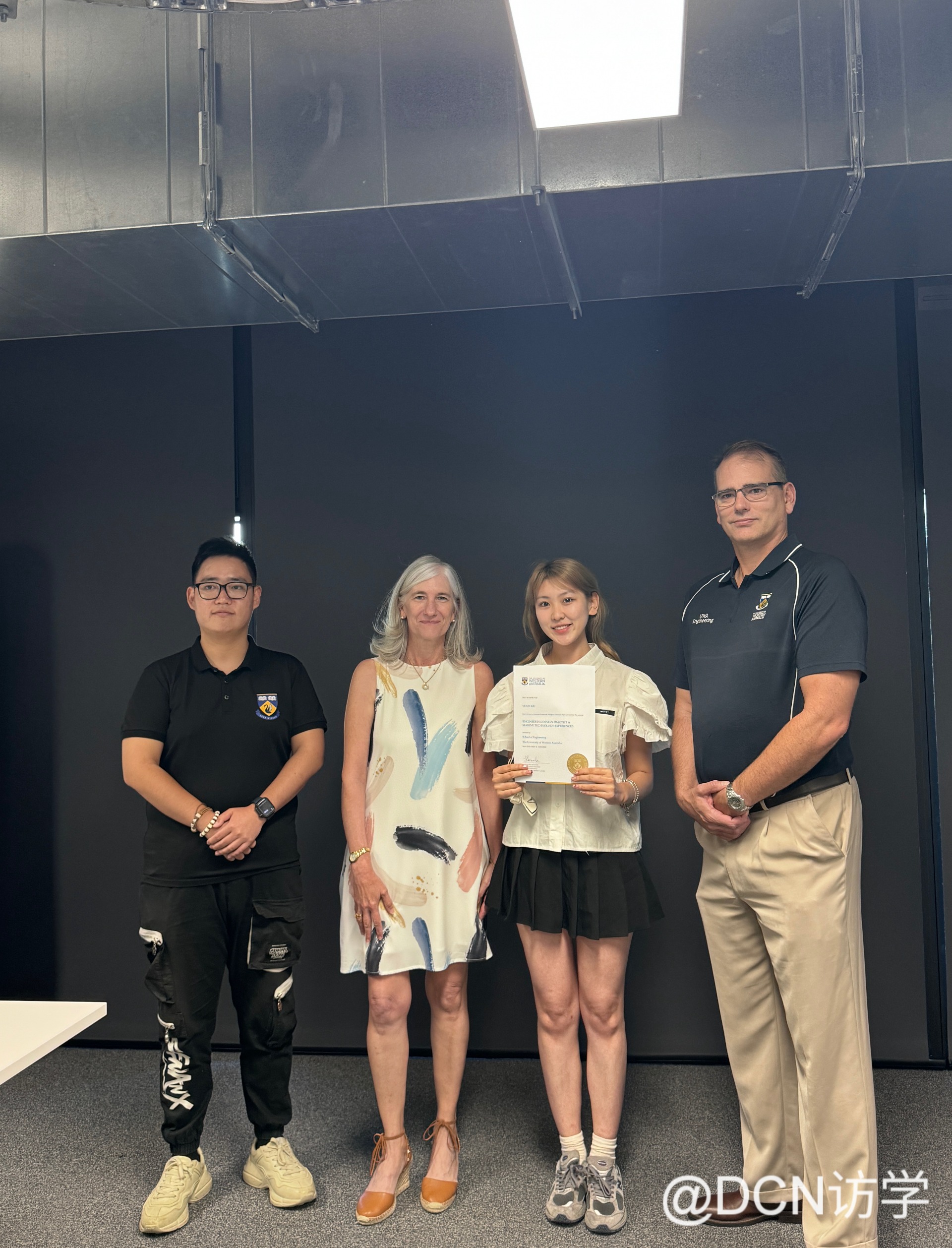
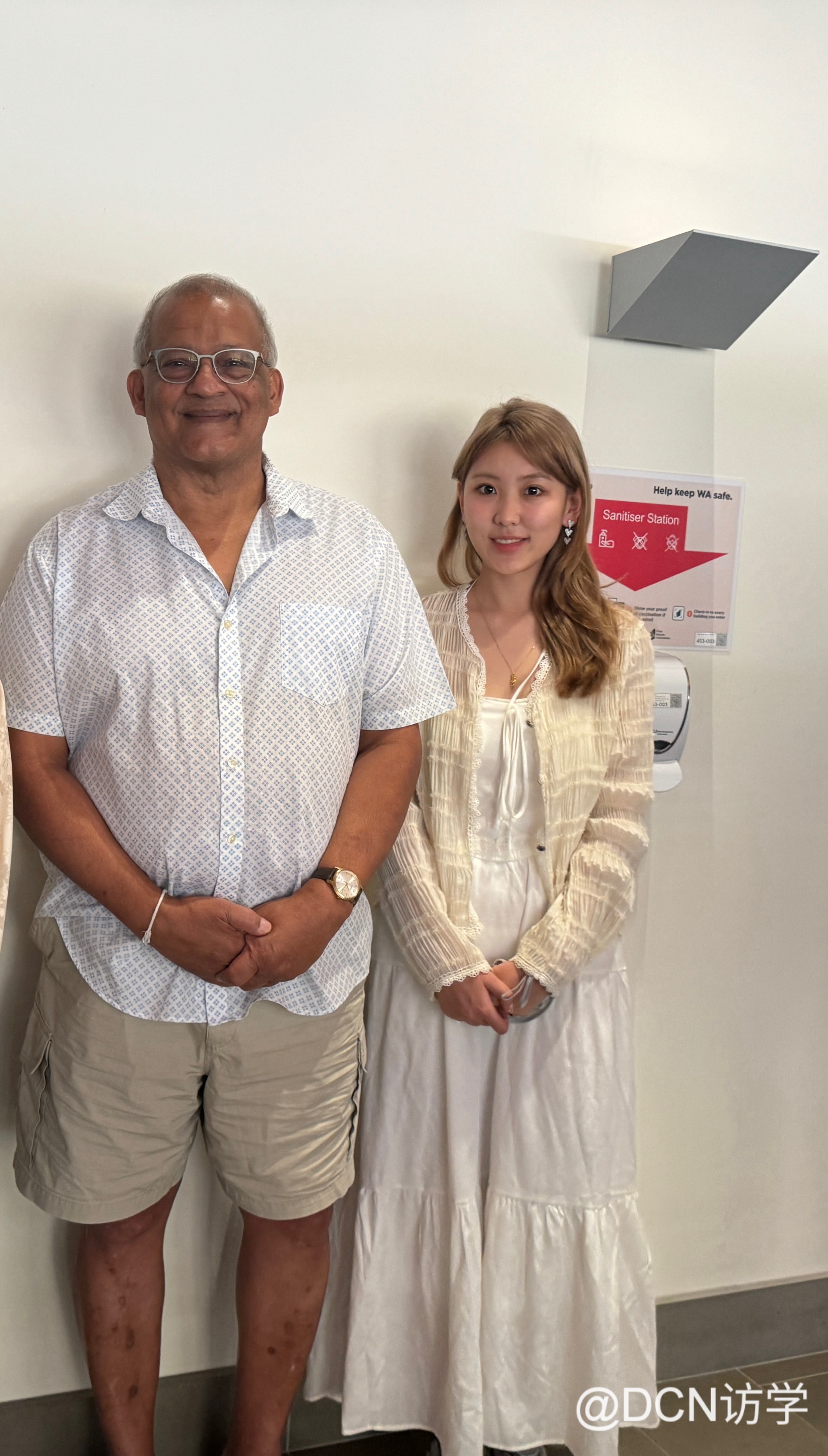
----A Student (ZHENG)
This one-month study tour was incredibly meaningful for us, providing new insights into Australian life in terms of learning, culture, and lifestyle.
Learning Experience:
Although the courses we took weren’t directly related to biology, they gave us a deeper understanding of engineering concepts. There is no such thing as useless knowledge—while what we learned during this course may not directly create value right now, it certainly enhances our overall understanding. In this program, we were assigned to different groups, and working with my team, the "Purple Team," taught me a lot, especially from one of our undergraduate teammates, who was very responsible and efficient. Although the course was short, it nurtured our critical thinking and allowed us to engage in hands-on experiments that were very interesting. We learned to combine practice, knowledge, and creativity.
The teachers were attentive and dedicated, treating each of us with care and consideration, making the classroom feel welcoming and supportive. Working with my teammates to complete the final project was a rewarding experience, not because of the outcome, but because the process itself introduced us to new ways of thinking and collaborating.
Cultural Experience:
Living with a local family gave me an authentic and effective way to experience Australian culture and lifestyle. I truly enjoyed my time with my host family during that month, especially with the 4-year-old girl in the house, who was incredibly sweet. From the first day when she memorized my complex name to her excitedly pulling me around the house for a tour before I could even unpack, she made me feel so warm and welcomed, like a little angel. Her parents were also very friendly and treated me not as a guest, but as part of their family. Their kindness made me feel free and comfortable, even in a foreign land.
Through this experience, I learned more about the differences between China and Australia. Even though it was summer, the heat was never oppressive—it was a cool, comfortable summer without sweat. There were many things I found interesting, like driving on the left, greeting the bus driver when getting on or off, and the casual atmosphere where it felt completely normal to relax with friends outdoors, just chatting and lying around. The presence of many homeless people in the streets added another perspective to the city’s vibe.
The Comfort of Perth:
Perth has a way of making you appreciate early mornings and a slower pace of life. You’re awakened by the sounds of birds, and the morning sunshine makes you realize how beautiful the start of the day can be. The bus rides along the coast were so relaxing, creating an atmosphere of ease and tranquility that’s hard to find back home. The landscape here is also stunning. The natural environment is well-preserved, with many areas untouched by development. The beaches are indescribably beautiful, as if every coastline is a hidden gem. Rottnest Island’s "jellyfish sea" with its crystal-clear, sparkling blue water was especially mesmerizing—no matter how long I looked, I couldn’t get enough of it.
I’m so glad I had the opportunity to participate in this study tour and experience a different kind of Chinese New Year abroad. This journey allowed me to turn a new page and see even more of the wonderful world around me.
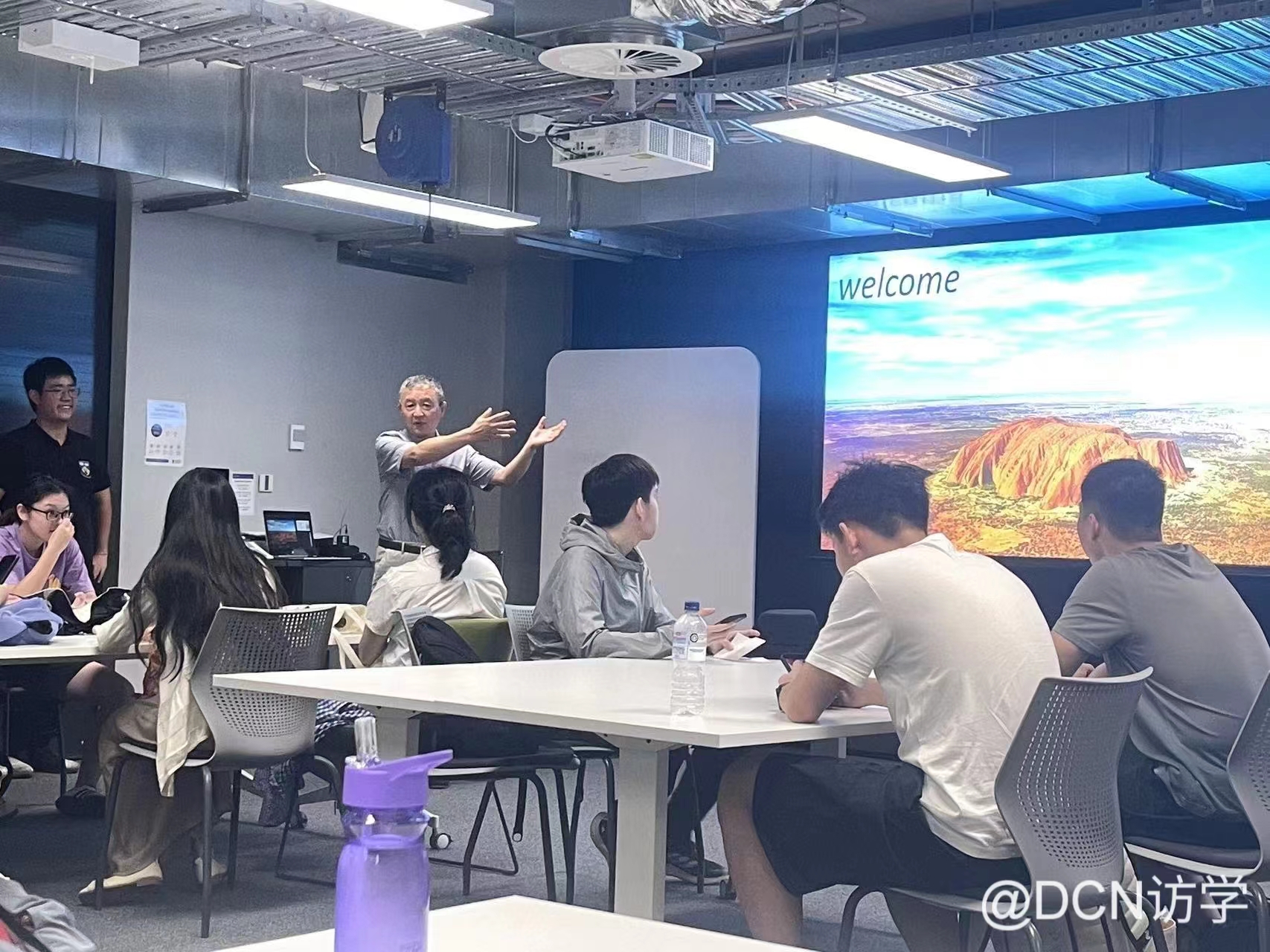
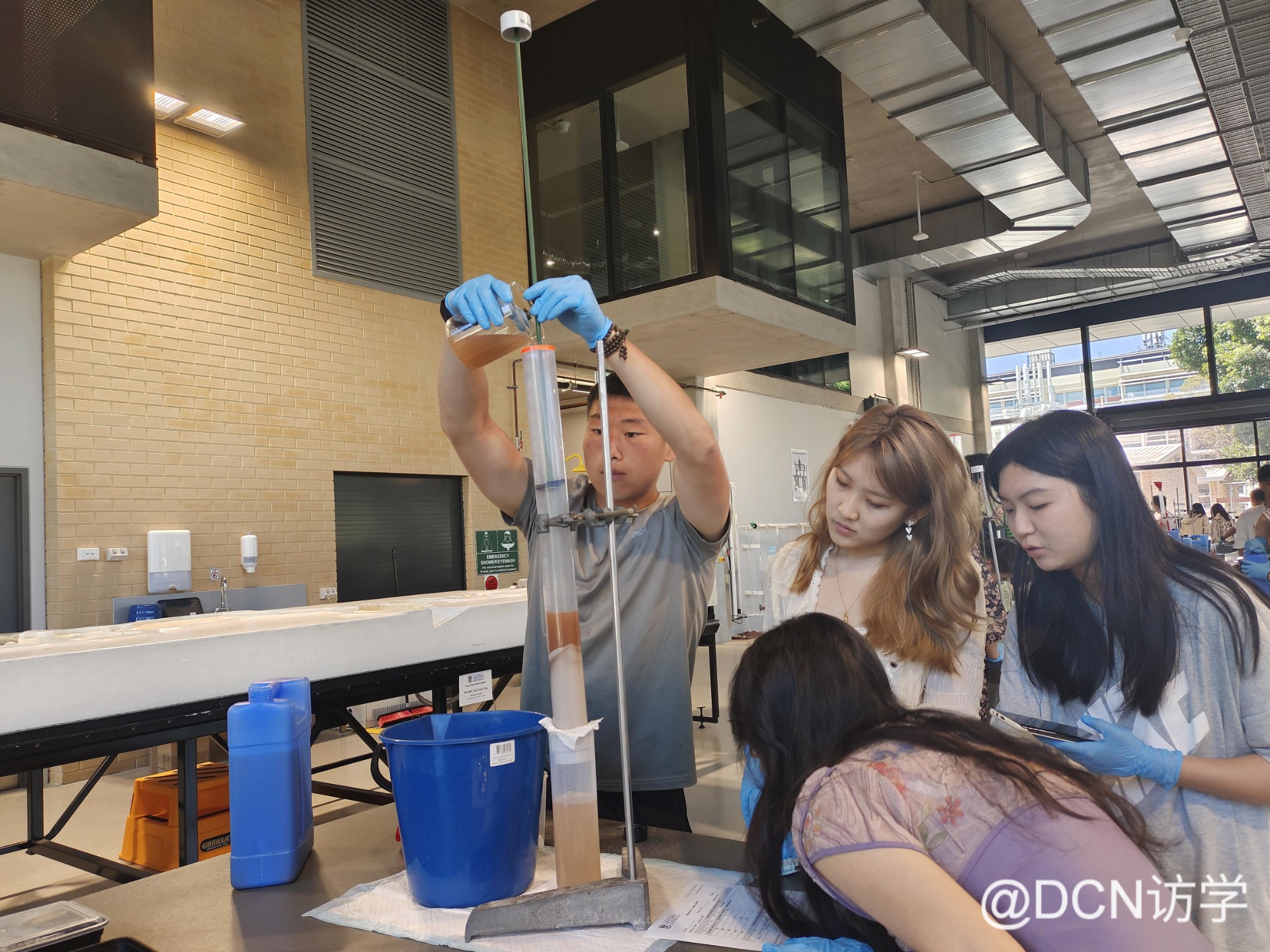
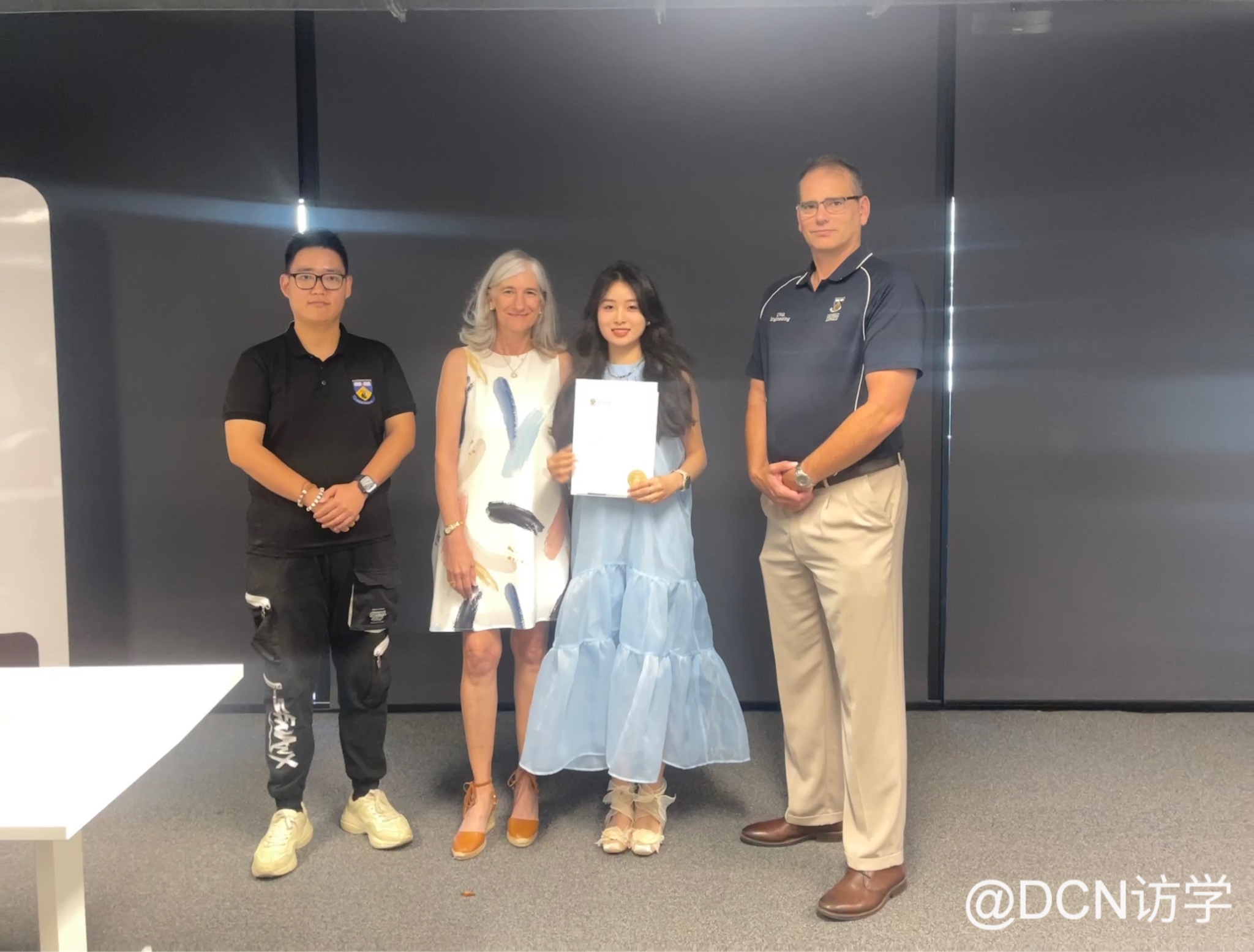
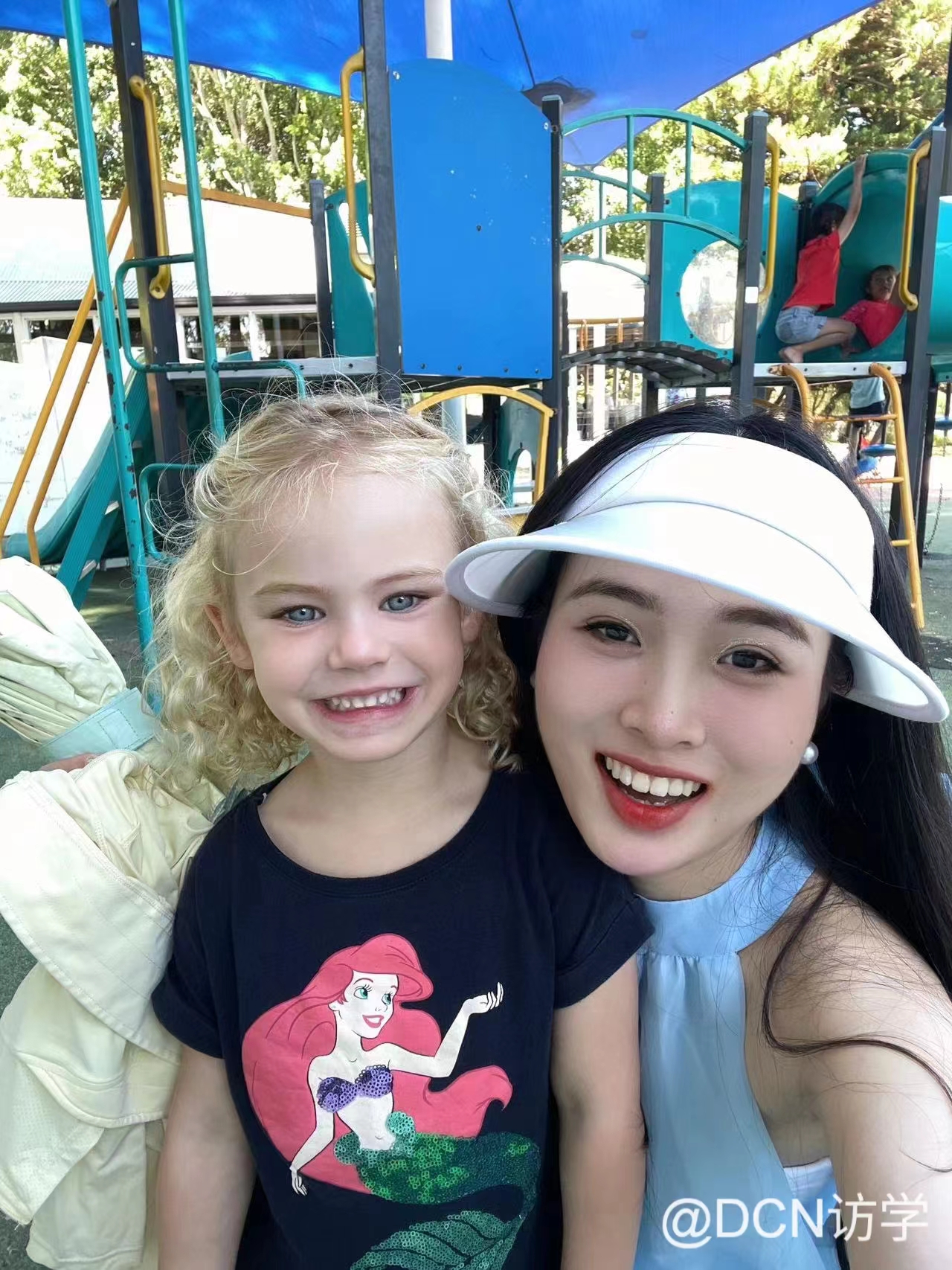
----A Student (WANG)
After a month-long study tour at the UWA School of Engineering, I gained a great deal.
Initially, when the program was announced, I was hesitant about studying abroad during the winter break, especially since it coincided with the Chinese New Year. However, I didn’t want to miss the opportunity to experience studying abroad. After consulting with my parents and teachers, I decided to go ahead and register.
Upon arriving in Australia, the locals welcomed us with a BBQ, and then we met our host families, who would be taking care of us during our stay. My host family was incredibly warm and welcoming, providing us with authentic Australian meals and helping us with practical details like how to get to the university. The next day, we headed to the University of Western Australia (UWA), where the teaching assistants and professors explained the program details and the upcoming course schedule. They also gave us a campus tour before we started our classes.
Typically, each day consisted of one engineering class and a lab tour. In the afternoons, we had free time to rest or explore. After three weeks of study, we completed our team project reports and presentations. Overall, I found the courses manageable, and it was a great opportunity to practice my English-speaking skills, presentation abilities, and teamwork. This program also offered the perfect chance to experience the local culture and lifestyle. The course content was rich, and the support from the host families with meals and accommodations ensured a comfortable stay. The host families often offered to take us on outings, and they were always helpful in explaining things we didn’t understand. Interacting with the host family was also an excellent opportunity to improve my communication skills.
One memorable moment was when we cooked a meal for our host family to celebrate the Chinese New Year, and afterward, we watched the Spring Festival Gala together. Our host family was very receptive and showed a deep appreciation for Chinese culture.
The study tour was well-supported by the teachers from UWA, the DCN project, and the university faculty, ensuring everything went smoothly. On a personal level, I gained so much from this experience—the exposure to international life, improvement in my language skills, the opportunity to study at a prestigious international university, and visits to advanced laboratories. These experiences will greatly benefit my future studies. I would like to extend my thanks to the university and the DCN teachers for their care and support throughout the program.
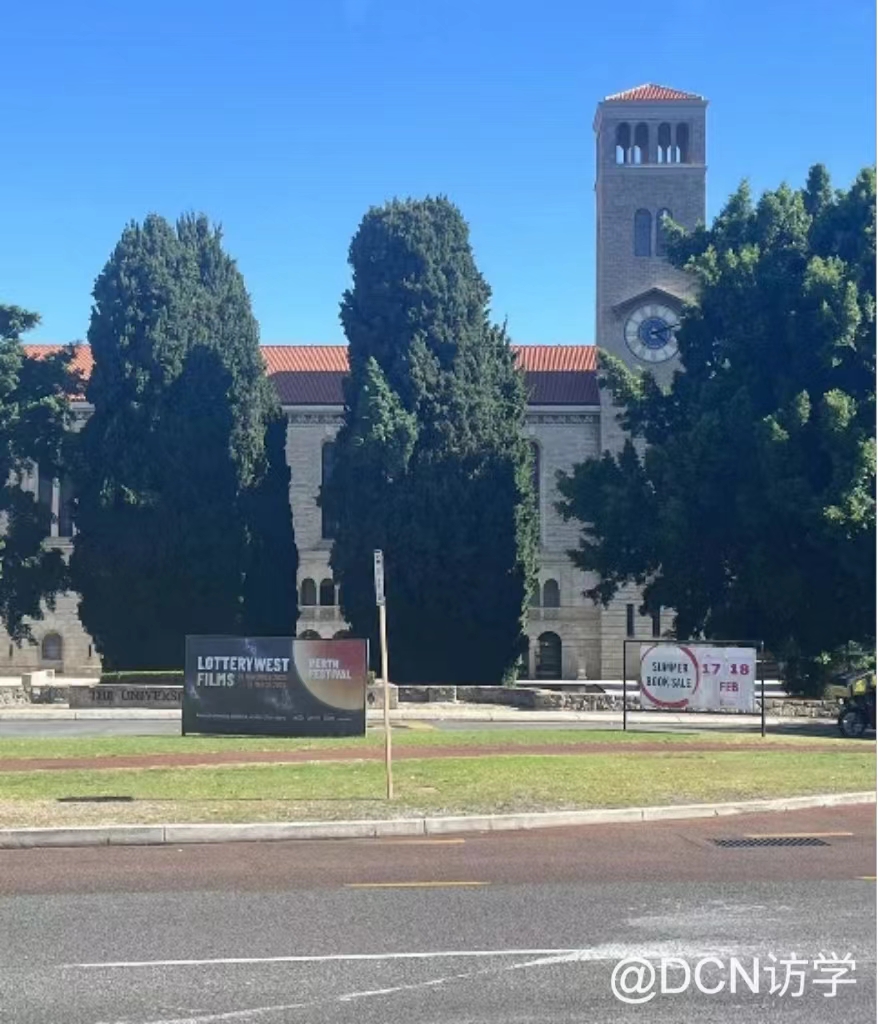
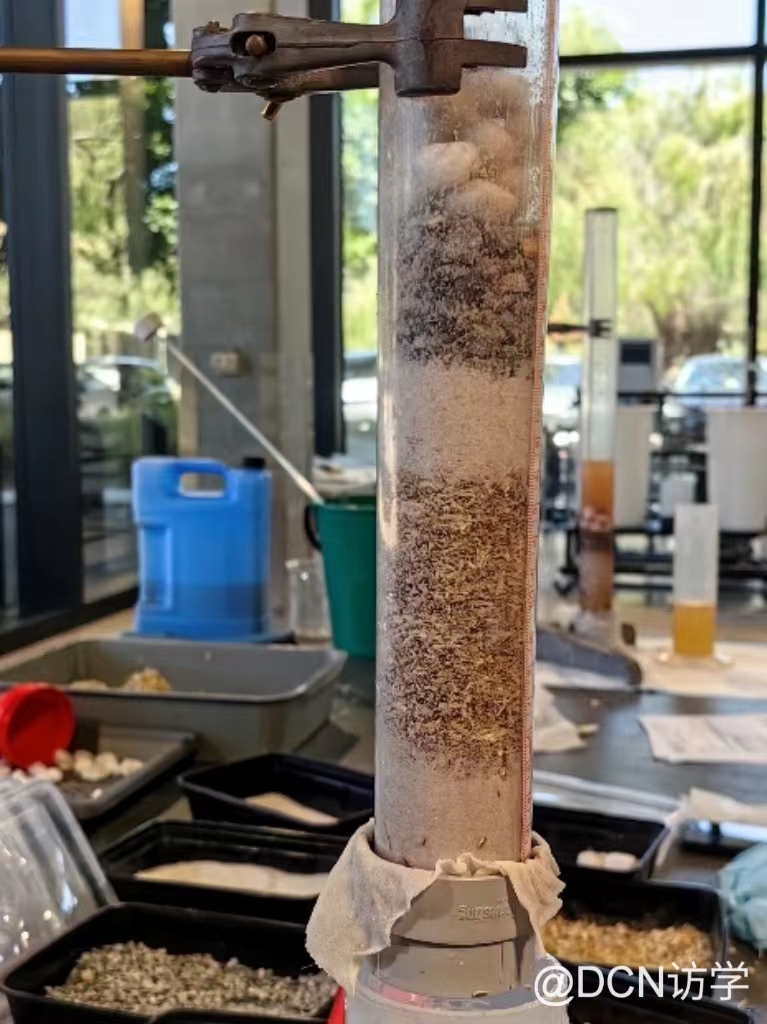
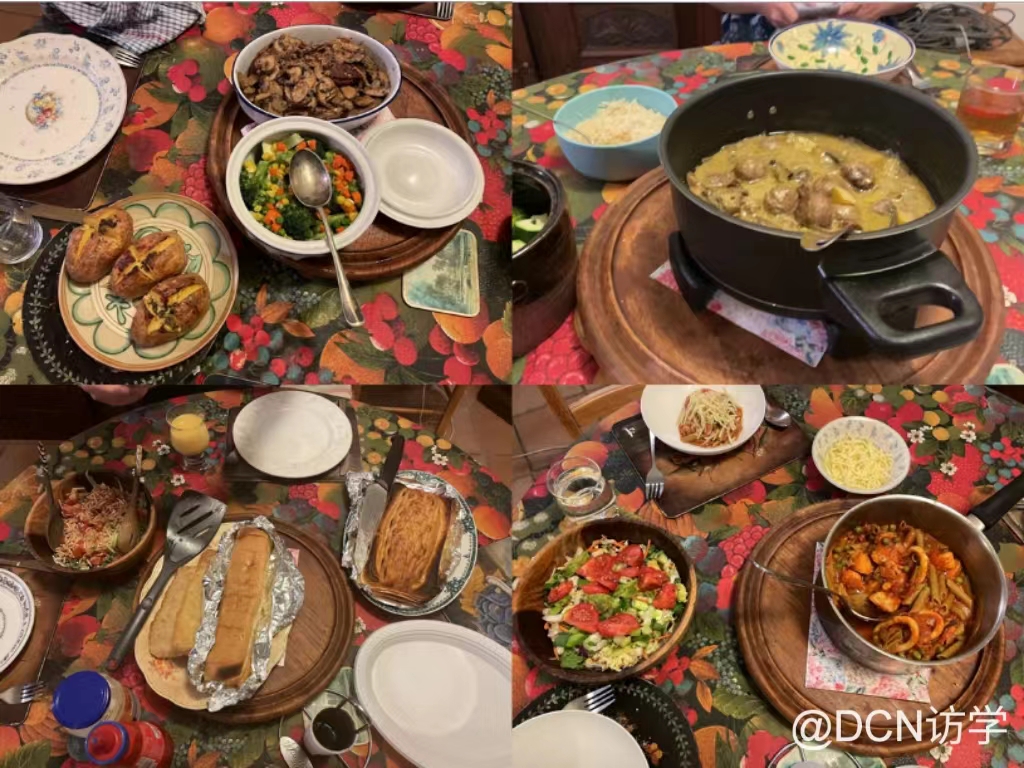
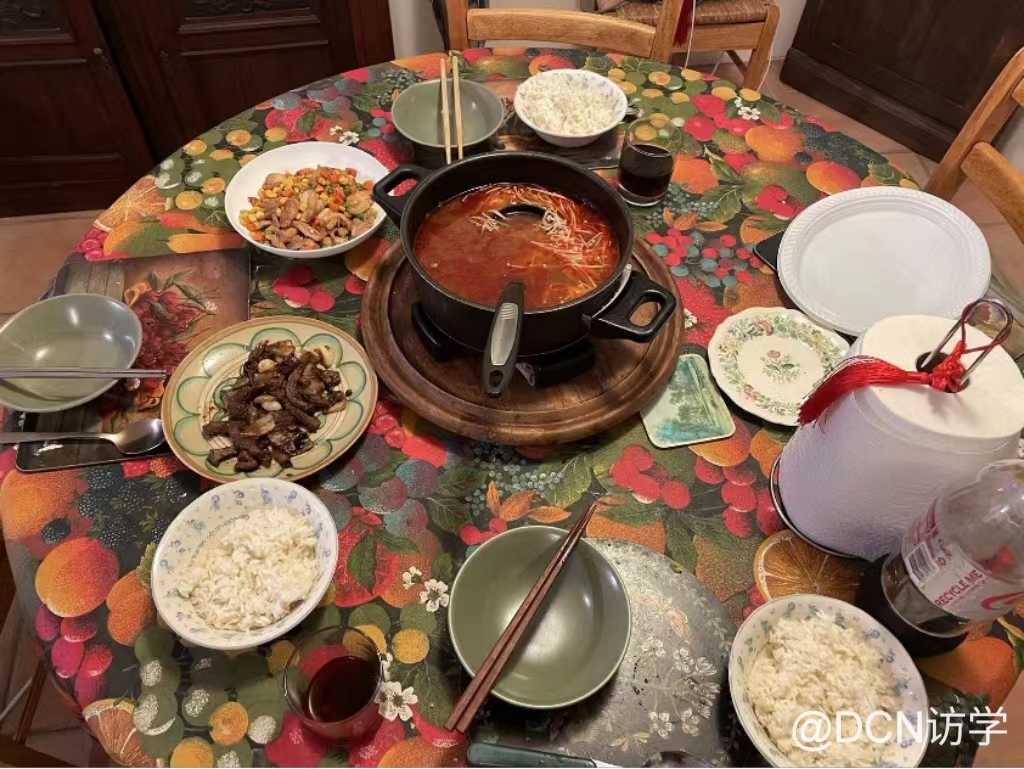
During this visit, the students recorded the most beautiful scenery and the most touching moments with their cameras. I believe that students will remember this unforgettable journey, and in the corner of the time, looking back at this time, they will feel that it was really a wonderful memory.
